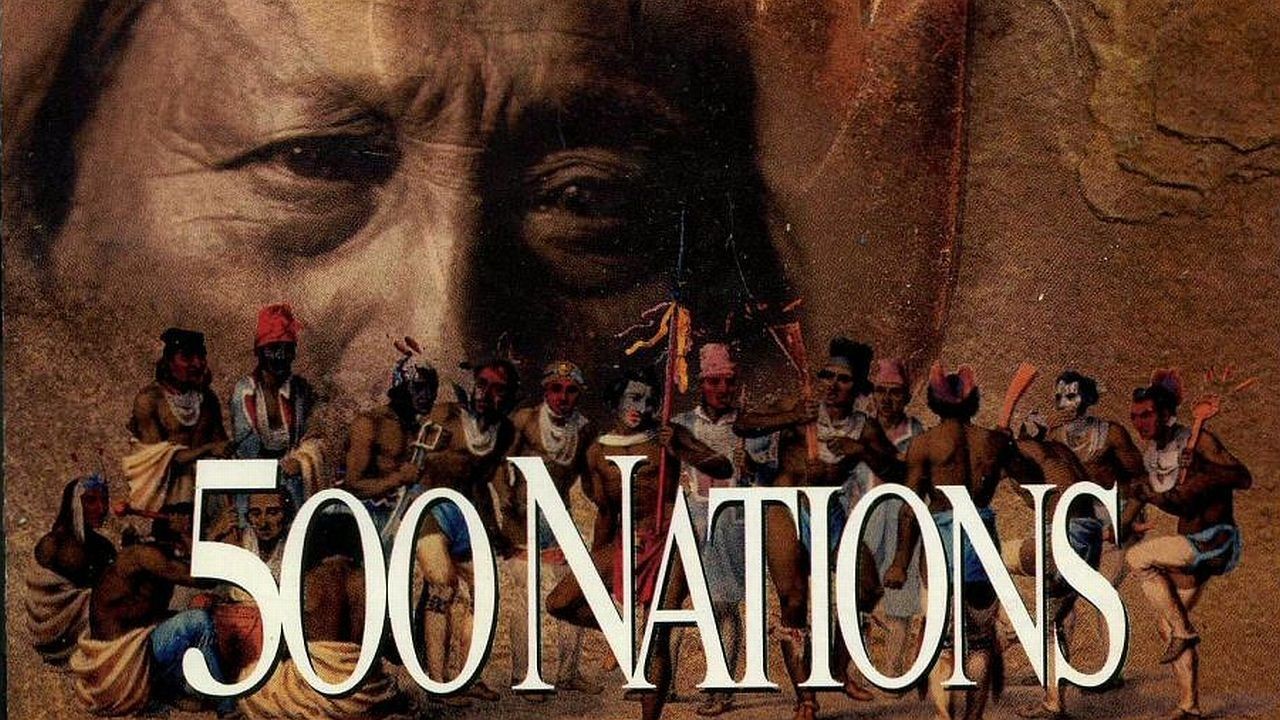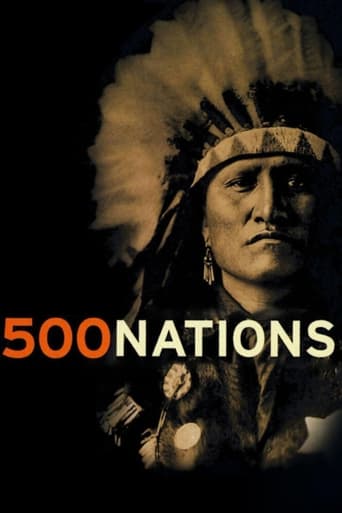



Purely Joyful Movie!
Blending excellent reporting and strong storytelling, this is a disturbing film truly stranger than fiction
View MoreThis is a must-see and one of the best documentaries - and films - of this year.
View MoreThe plot isn't so bad, but the pace of storytelling is too slow which makes people bored. Certain moments are so obvious and unnecessary for the main plot. I would've fast-forwarded those moments if it was an online streaming. The ending looks like implying a sequel, not sure if this movie will get one
View MoreBeing of Cherokee descent, I have a long-standing, fervent passion for Native American history. I only recently purchased the 500 Nations DVD set, which somehow I had managed to remain unaware of all these years. I loaded the first DVD of the set with the intention of viewing it in small bites; however, the program is so well-produced and so informative that I found myself unable to stop watching until I had watched every DVD, every chapter, every moment of the program. It is obvious that the producers really did their homework, striving to maintain a rarely experienced level of historic detail and accuracy.Anyone with an interest in Native American history should make it a point to get a copy of this program, which is a definite "keeper" for any good library of documentary videos. It is more than worthy of inclusion in any American history class, as it provides tremendous insight into a part of North America's history -- including the parts which are bloody, embarrassing stains which can never be washed from the hands of a nation.
View MoreThis is the history of indigenous Americans my generation never learned in school: their rich cultures and spiritualities, the waxing and waning of economic and military powers of tribes, city-states, and empires, and the details of the barbarism of invading Anglos/Europeans. The CGI reconstructions of indigenous buildings and cities, the interviews with modern indigenous people, and readings from their ancestors' writing, breathes life into what could have been dry and tedious material. I've watched the first of this 4-disc series, and I'm already uncomfortable, knowing that my life in California is predicated on the genocide of those who were here first. But it's important to know the truth, however unpleasant.
View MoreFascinating amount of detail on AmerIndian history.It's also however extremely one sided.We don't hear about all of the endemic massacres by Indians of whites from the get go, through the whole thing. We also don't get any context. I.e., everyone believed in conquest against deeply foreign peoples not sharing the same religion/world view in the 17th, 18th and 19th centuries.Certainly AmerIndians did, most of whom lived in states of endemic (as in yearly or more often) warfare, including often the extremely cruel torture of their captured enemies. E.g. the Hurons in common with many Great Lake tribes skinned alive their captives in ritual fashion back in their own home villages. For those not committed to reading source history, the movie Black Robe (which takes a quite neutral and or mutually critical cultural stance) is informative in this regard.The current view that conquest is horrible and likely to be called genocide is unique, at least among winning societies (and usually among everyone), in world history. The AmerIndians were the ones who taught total war to the whites early in the 1600s near the Atlantic coast, killing old women and children, as well as all men combatants (or not), and taking the younger attractive women as additional wives / concubines / sex slaves. This had been the form of warfare they had waged amongst themselves before first contact with Europeans. Read Thomas Sowell in "Conquest and Cultures" on the Amerindian issues. Sober, balanced, and most interesting.There's no question that Euro-Americans committed many atrocities against AmerIndians, as amply reported in this series. But to watch this series you'd think that Indians never killed their enemy's women and children or took them as slaves. In fact many tribes usually did one or the other as a matter of their avowed tribal political and religious policy whenever they had the chance whenever they were at war. In contrast it was never or almost never the policy of the British or national American government to kill not only enemy men (combatants) but also women and children -- although it certainly sometimes was the policy of some local militia commanders, and later of some great plains and western Army commanders -- and sometimes in a winking way some frontier governors. However, shamefully, the "removal", i.e. "ethnic cleansing" of AmerIndians to points ever further to western semi or actual badlands was far too often official policy. This was partly in response to endemic guerrilla war and partly simply in response to endemic lobbying by land hungry whites (the only side of it we hear in this one sided, propaganda-lite series). Andrew Jackson's removal policy against the successfully settled, agricultural, for the most part no longer guerrilla raiding, and semi-assimilating Cherokee, known as the "trail of tears", is probably the most shameful of all instances of this. This is of course amply reporter here, though also of course, with the Cherokees totally and completely without fault or threat.All history has some point of view. At a (desireable) minimus, one always has to edit what down to what is most important. Nonetheless, when the "victim" (under the approach of this series and many other works) is virtually completely without fault (a rare reference to increasing alcoholism solely of course as a response to victimization not really excepted), and certainly without any independent capacity for aggression other than belated and regretfully ineffective defense, a work may be hard to distinguish from propaganda.Now if two competing propagandas on the same topic were aired back to back, that would have been another thing.
View MoreWell, I certainly was NEVER bored with this documentary. 500 Nations brings a lot of emotion to the surface. It is an honestly presented, and meticulously research history of the native cultures of North America, and the effect upon them of the invasion of the white Europeans. When I say "honest", it is disturbing at times, and parents should be warned that, while accurate historically, it also pulls no punches in showing the highly organized and cultured tribes of the Americas being brutalized by ignorant european invaders. You can also sense that the white europeans would have been so much better off, had they truly wished to live with the Nations as brothers instead of conquerers. Our society is less today than it might have been, had the europeans brought more to the relationship that genocide, destruction, and disease to the Nations. IMHO, the best documentary on some of the Nations who called North America their home, long before Vespucci decided to give the land his name.
View More